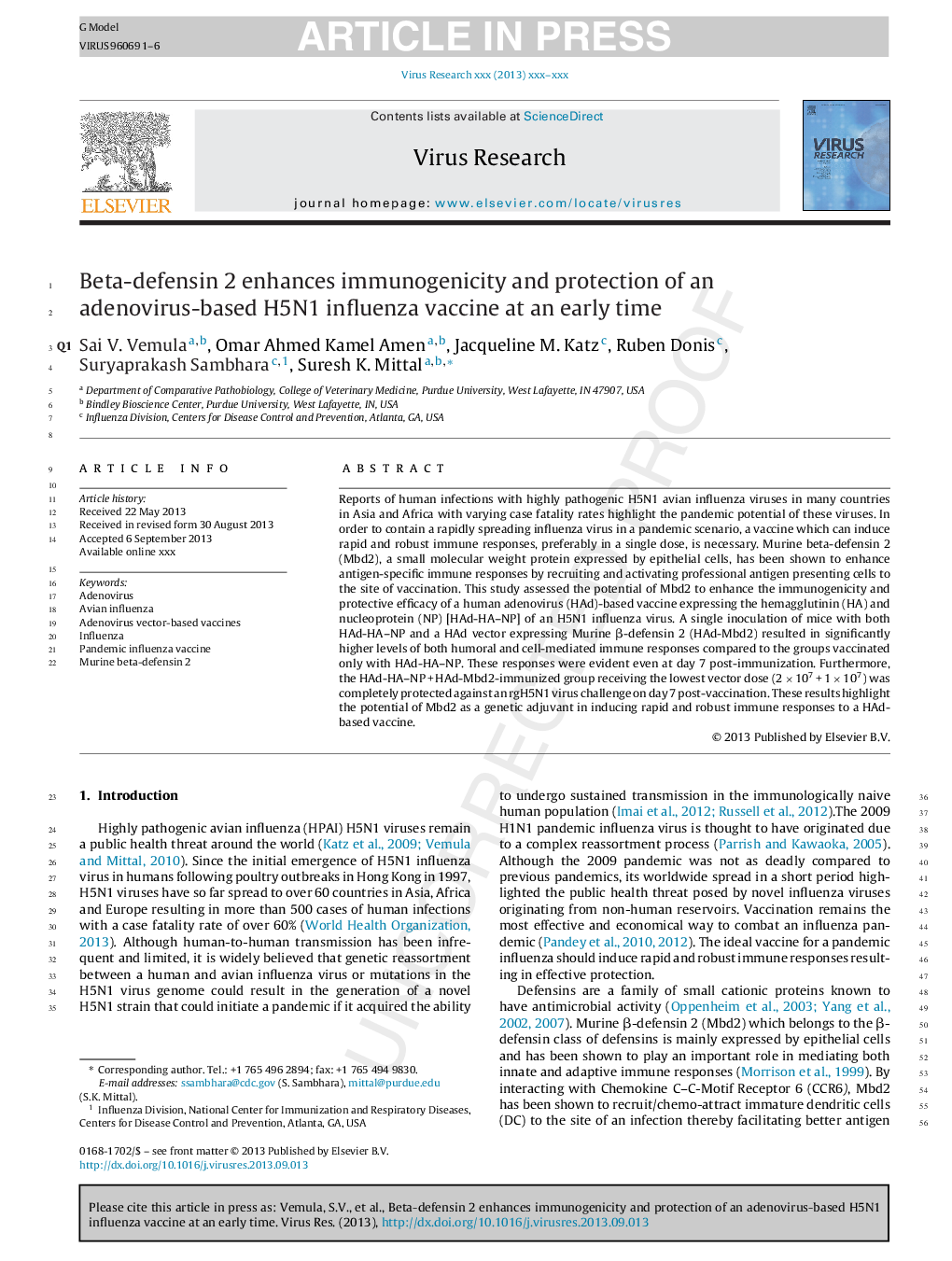| Article ID | Journal | Published Year | Pages | File Type |
|---|---|---|---|---|
| 6142704 | Virus Research | 2013 | 6 Pages |
Abstract
Reports of human infections with highly pathogenic H5N1 avian influenza viruses in many countries in Asia and Africa with varying case fatality rates highlight the pandemic potential of these viruses. In order to contain a rapidly spreading influenza virus in a pandemic scenario, a vaccine which can induce rapid and robust immune responses, preferably in a single dose, is necessary. Murine beta-defensin 2 (Mbd2), a small molecular weight protein expressed by epithelial cells, has been shown to enhance antigen-specific immune responses by recruiting and activating professional antigen presenting cells to the site of vaccination. This study assessed the potential of Mbd2 to enhance the immunogenicity and protective efficacy of a human adenovirus (HAd)-based vaccine expressing the hemagglutinin (HA) and nucleoprotein (NP) [HAd-HA-NP] of an H5N1 influenza virus. A single inoculation of mice with both HAd-HA-NP and a HAd vector expressing Murine β-defensin 2 (HAd-Mbd2) resulted in significantly higher levels of both humoral and cell-mediated immune responses compared to the groups vaccinated only with HAd-HA-NP. These responses were evident even at day 7 post-immunization. Furthermore, the HAd-HA-NP + HAd-Mbd2-immunized group receiving the lowest vector dose (2 Ã 107 + 1 Ã 107) was completely protected against an rgH5N1 virus challenge on day 7 post-vaccination. These results highlight the potential of Mbd2 as a genetic adjuvant in inducing rapid and robust immune responses to a HAd-based vaccine.
Related Topics
Life Sciences
Immunology and Microbiology
Virology
Authors
Sai V. Vemula, Omar Amen, Jacqueline M. Katz, Ruben Donis, Suryaprakash Sambhara, Suresh K. Mittal,
